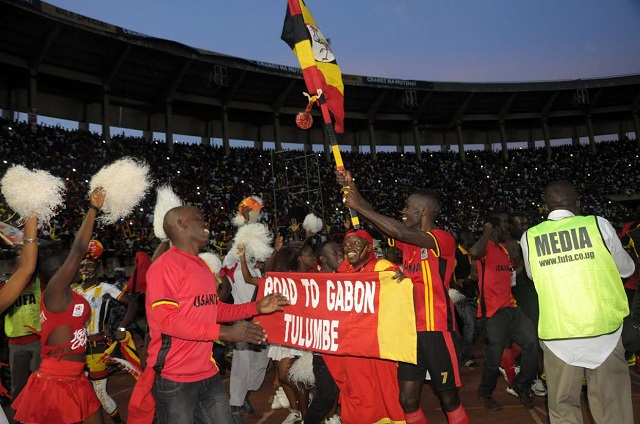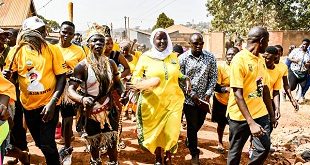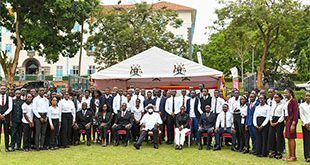
Luck, love, prayers or immaculate planning?
Whereas the Uganda Cranes will begin their 2017 African Cup of Nations (AFCON) campaign in Gabon with some stature as the Confederation of African Football (CAF) National Team of the Year, this hardly masks the fact that they are the underdogs in their group – if not the whole competition.
Denis Masinde Onyango, the team’s first choice keeper, deputy captain and most successful player, is fully aware of this. Speaking to reporters on January 2, at his boyhood club; Sports Club Villa in Kampala, Onyango – the CAF African-Based Player of the Year – said it was not all that bad to be underdogs because, after all, it allows them to play under less pressure.
“Our target is to go past the group stages. It is not easy but we will be good if we do,” said Onyango, who plays in the South African league champions Mamelodi Sundowns.
But beyond the target, it appears The Cranes winning strategy is less certain.
According to the Federation of Uganda Football Associations (FUFA) boss Moses Magogo, The Cranes’ Class of 2017 does not owe its success to accident or luck, but “immaculate planning, hard work and execution by FUFA, the coaches and the players.”
Cranes head coach Milutin Sredojević has in the past been less certain.
Right after the September 4, 2016 win over Comoros, Sredojević, or Micho as he is commonly known, tweeted that The Cranes’ victory through the group stages had resulted from ultra-patriotism, commitment and enthusiasm of players, improvisation of certain individuals, and genuine love and prayers of Ugandans. And he would know.
Will this “winning combination” enable The Cranes to fly back from Gabon with the AFCON trophy?
Time will tell.
As many analyses have pointed out, Uganda’s persistent underwhelming performance owes to what they describe as the government’s disinterest in sports generally and the maladministration that bedevils the country’s football association FUFA.
“For example, 0.06% of the [2014/5] national budget was allocated to all sports inclusive of salaries of government staff,” bemoaned Magogo last year.
But Magogo, like many of his predecessors, has faced accusations of financial impropriety.
Right after The Cranes’ historic qualification in September, when they pipped Comoros 1:0, he weathered quite a money related storm when Micho publicly expressed displeasure that he was owed salary arrears. They were up to five months, which amounted to between US$40,000 and US$60,000. The money was quickly paid in spite of the Federation’s claim that it was cash strapped even when it had just had a record turnout to the game against Comoros.
In December 2016, the team’s preparations to Gabon almost hit a snag after government failed to provide US$1.226 million (about Shs4.418 billion) FUFA had budgeted for an eight-day training camp in the United Arab Emirates, which included friendly games with Tunisia and Ivory Coast; the reigning African champions.
When they eventually did, it was less than half (US$540,716) what had been requested. Government claimed it had other commitments to cater to as well. But it also cited some US$237,500 (about Ush855 million) FUFA had received from CAF to aid preparations.
The money is half of what the country that tails its group is entitled to, according to CAF’s revised revenue sharing kschedule. US$4 million awaits the overall winner.
Although FUFA acknowledged receipt of CAF’s cash, they did not make much import of it, preferring to harp on about government support.
“The entire football family, the fans/public, the corporate world and the government has still not yet conceptualised the goldmine of a professional football industry considering the natural endowment that God has bestowed upon us as a nation,” Magogo said in his end of year speech.
 The Independent Uganda: You get the Truth we Pay the Price
The Independent Uganda: You get the Truth we Pay the Price



